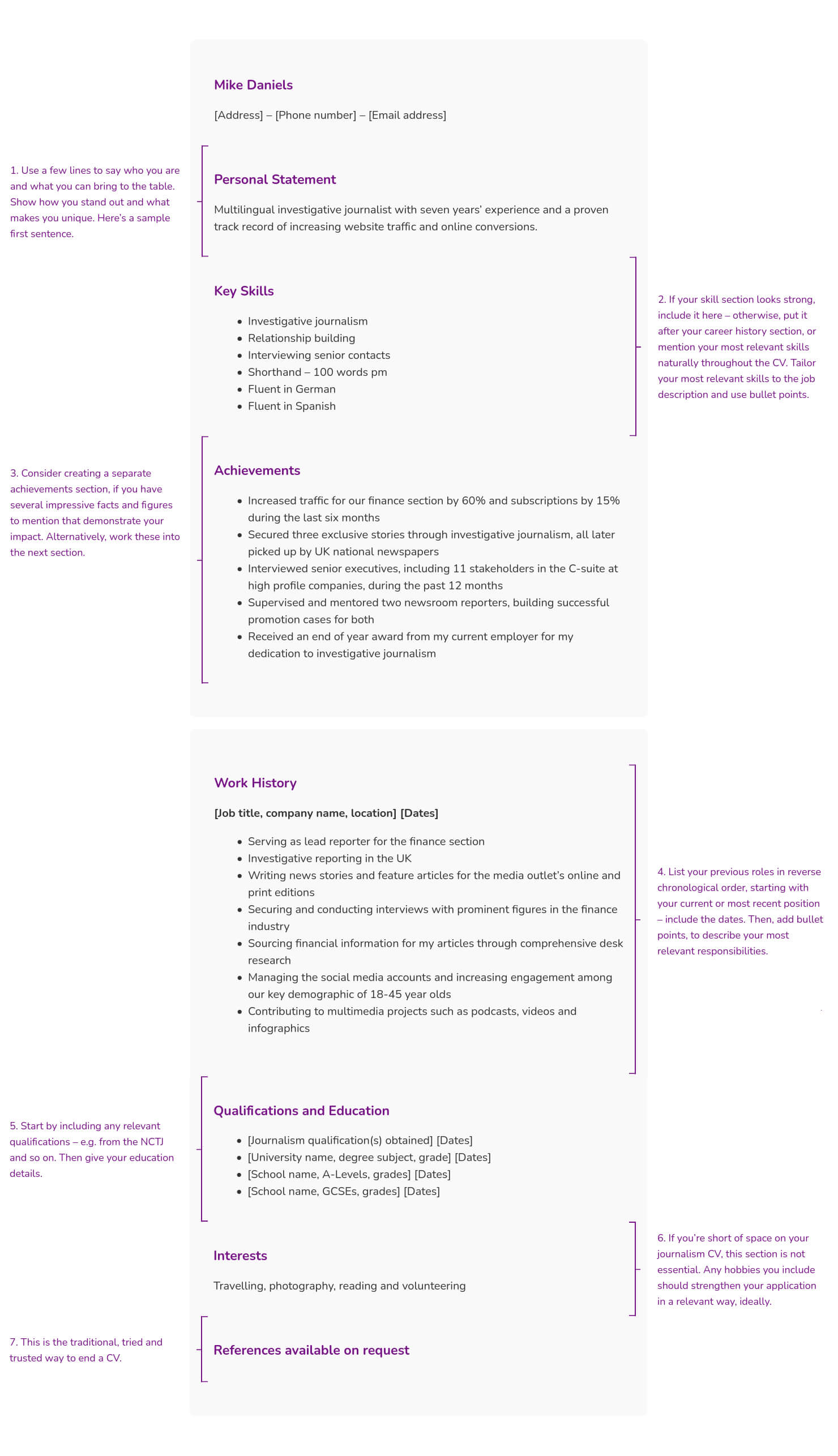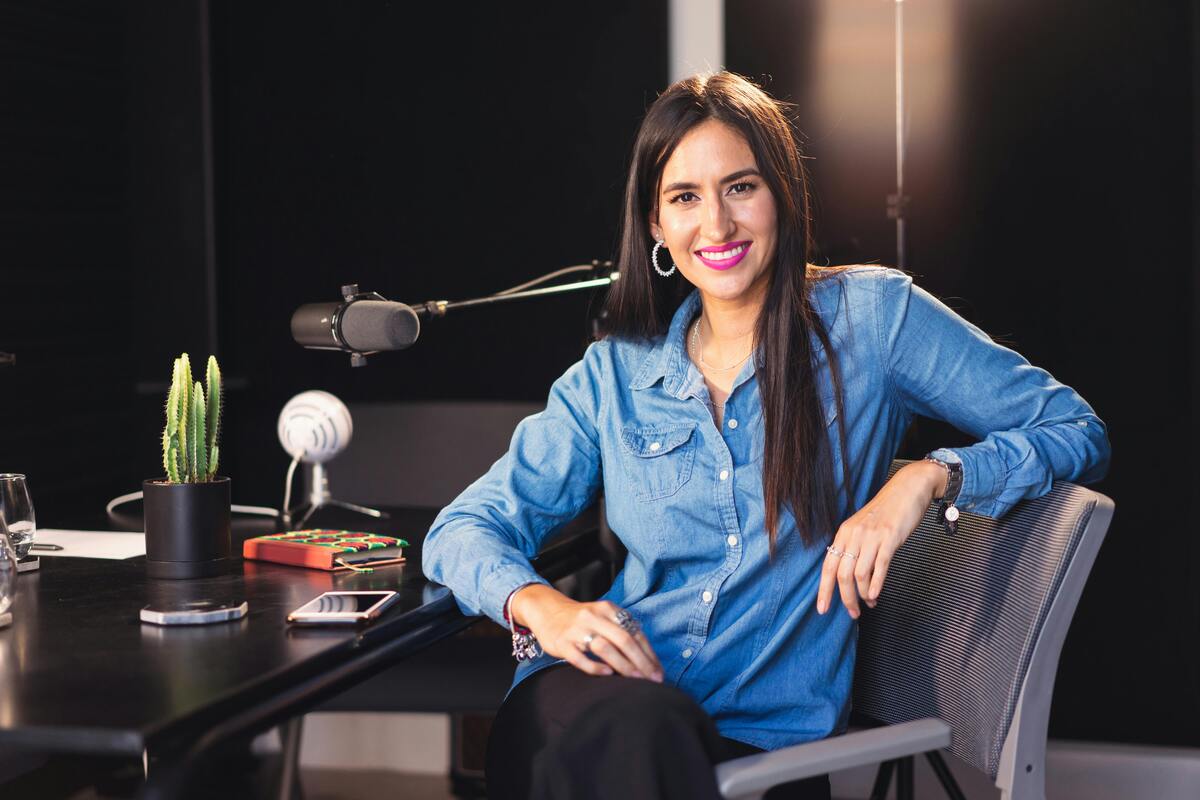If you’re wondering how to become a journalist, you’re not alone. It’s an undoubtedly exciting and varied career – but one that can feel hard to break into.
Journalism is a career with plenty of appeal, the opportunity to chase stories, interview fascinating people and see your byline in print or online.
The truth is, there isn’t a single route into journalism. Some take the traditional path. This tends to be university and journalism school.
Others approach the profession via apprenticeships, freelancing, or even switching careers later in life.
Whichever route is right for you, with the right mix of persistence, skill and experience, it’s more than possible to get into journalism in 2025.
This guide takes you through what journalists actually do, the main training options in the UK, the skills you’ll need, and the realities of pay and prospects.
Key points: How to get into journalism
- Journalists work across print, broadcast and digital platforms, covering everything from politics to sport.
- There are several entry routes — university degrees, NCTJ-accredited schools, journalism apprenticeships and on-the-job training.
- Practical skills such as writing, interviewing and digital know-how are just as important as qualifications.
- Building a portfolio of work through blogs, student publications or freelancing will make your applications stand out.
What does a journalist do?
In its purest form, journalism is about telling stories that matter.
Journalists dig into issues, interview people involved, check facts, and shape all of this into clear, accurate reports for their audience.
The work can look very different depending on the role.
A local newspaper reporter might spend their day covering council meetings, community events or court cases.
A broadcast journalist could be producing a radio segment or reporting live from a breaking news story.
Others specialise in long-form features, data analysis or investigative projects that take months to develop.
You’ll also find journalists in sport, business, culture, fashion and science — so whatever your interest, there’s usually a way to combine it with journalism.
The main routes into journalism
Because the industry is competitive, training helps. But training doesn’t have to look the same for everyone.
University degrees
Plenty of journalists study journalism or media at university, which gives a solid grounding in writing, reporting and media law.
Some choose unrelated subjects — politics, history, English — and then take a postgraduate journalism qualification afterwards.
Journalism schools
Specialist training centres are a popular option too.
News Associates, the Press Association, and courses at City, University of London or Cardiff University are all NCTJ-accredited, which means they meet the standards employers recognise.
These programmes teach practical skills like shorthand, court reporting and digital storytelling.
Apprenticeships
Apprenticeships are another route if you’d rather avoid full-time study.
Schemes run by the BBC and regional news publishers allow you to earn a wage while learning on the job, combining newsroom placements with structured training.
Work experience
Almost every journalist will tell you that work experience matters.
Placements at newspapers, broadcasters or online outlets not only give you a taste of the job but also help you build contacts.
Even unpaid opportunities can be valuable, though you should look for fair conditions.
Other paths
Not everyone comes through formal routes. Some people build a portfolio through blogging, podcasting or freelancing.
Others move across from related careers — public relations, research or specialist industries where subject knowledge is valuable.
Skills every journalist needs
It’s no surprise that strong writing and communication top the list.
But employers also look for curiosity, critical thinking and the ability to stay calm under pressure.
Modern journalism is increasingly digital, so being comfortable with social media, SEO and multimedia tools is a huge advantage.
Many newsrooms expect reporters to shoot video, record audio or analyse data alongside traditional reporting.
And, of course, accuracy and ethics remain central. Journalism carries responsibility, so getting facts right and reporting fairly is non-negotiable.
Note: if you’re not sure how best to display your CV qualifications and skills when applying for a role, we’ve got you covered.
Building experience and a portfolio
While qualifications help, your portfolio often matters just as much. Editors want to see what you’ve produced.
Start small if you need to — contribute to a student newspaper, volunteer at a community radio station, or launch your own blog. Podcasts and newsletters are also great ways to practise storytelling and build an audience.
Once you have clips, start pitching freelance ideas. A short review or local story can lead to regular opportunities. Persistence is key: the more you put yourself out there, the better your chances.
For practical resources, the National Council for the Training of Journalists has advice on training, accredited courses and entry routes.
Our other career guides include:
- #1 How To Become An Accountant (UK)
- #2 How To Become A Lawyer
- #3 How Do You Become A Professor?
- #4 How To Become A Dermatologist
- #5 How To Become A Life Coach
- #6 How To Become A Financial Adviser
- #7 How Do You Become An MP?
- #8 How to Become a Detective
- #9 How To Become a Mortgage Advisor
- #10 How To Get Into Cyber Security
- #11 How To Become A Phlebotomist
Applying for jobs and writing your CV
When it comes to applications, your CV should highlight not only your education but also practical skills and evidence of published work. Even personal projects like blogs or podcasts are worth including if they show initiative and creativity.
Tailor your CV to each job — if the role is digital-heavy, push your social media or video experience. If it’s investigative, highlight research skills and persistence.
At PurpleCV, we help aspiring journalists present their skills and experience in the strongest light, whether you’re applying for your first internship or a senior reporting role.
Check out our journalism CV guide too.

Pay and career prospects
Money isn’t usually the main reason people choose journalism. That said, salaries improve with experience for newspaper, magazine and broadcast journalism.
- At entry level, many local and regional roles pay between £18,000 and £25,000.
- As you progress, mid-level salaries in larger organisations often reach £30,000–£45,000.
- Senior reporters and editors at national publications, or broadcast journalists with years of experience, can earn £45,000 plus.
- Household names in journalism, such as those in high-profile broadcast roles for the BBC, earn six figure salaries (source: Press Gazette)
The growth of digital platforms means opportunities aren’t limited to newspapers and TV anymore.
Online outlets, podcasts, and multimedia storytelling have opened up new career paths and ample opportunity to top up your salary with additional freelance work.
The challenges of journalism
There’s no getting around it: journalism is a competitive field.
Newsrooms have shrunk in recent years, and you may face long hours, tight deadlines and sometimes demanding subject matter.
But it’s also a career packed with variety and purpose.
Journalists talk of the buzz of breaking a big story or the sense of reward at helping audiences understand complex issues.
If you’re a strong communicator, the challenges will seem far from insurmountable.
FAQs: How to become a journalist
What qualifications do you need to become a journalist?
You don’t always need a degree. An NCTJ-accredited course or apprenticeship is highly respected, but experience and a strong portfolio can carry equal weight.
How do I start being a journalist?
Begin by creating work: write articles, record podcasts, contribute to student or local media. From there, seek training or apprenticeships to formalise your skills.
Is 30 too old to get into journalism?
Definitely not. Many people enter later in life, often with valuable subject knowledge from previous careers. That can actually make you more attractive to editors.
Are journalists paid well in the UK?
Pay varies a lot. Entry-level roles can be modest, but senior journalists, particularly at national outlets or in broadcast, can earn salaries of £50,000 and upwards.
Need some 1:1 coaching?
Learn from seasoned industry experts with our 1-on-1 Coaching service!
- Access to your own coaching expert
- Sessions available at short notice
- All industries covered


Final thoughts: Getting into journalism
There’s no single route to becoming a journalist, but the essentials are the same: curiosity, persistence and a willingness to put yourself out there.
Whether you take the university route, apply for an apprenticeship, or start freelancing and building your own platform, the important thing is to keep producing work and sharpening your skills.
If you found this guide useful, there are lots of useful career-focused articles on our blog, such as:
- How To Tell If An Interview Went Well: Good and Bad Signs
- How To Get A Job With No Experience: Can You Do It?
- Coaching vs Mentoring: Difference Between Coaching and Mentoring
Need some career support? Our career coaching service can help you prepare, practise and stand out.
If you’re serious about making the leap into journalism, start building your portfolio now.
When you’re ready to apply, take a look at our CV writing service here and contact us for any support you need.


